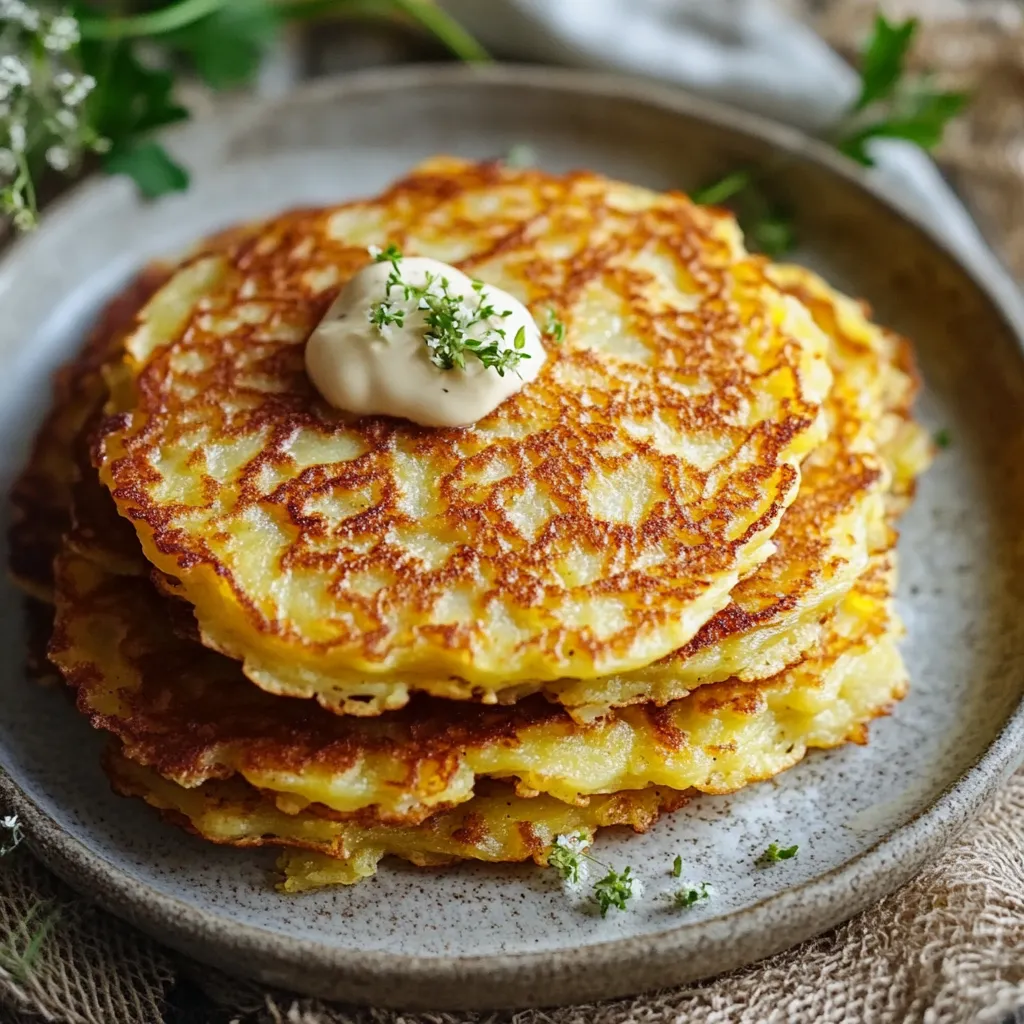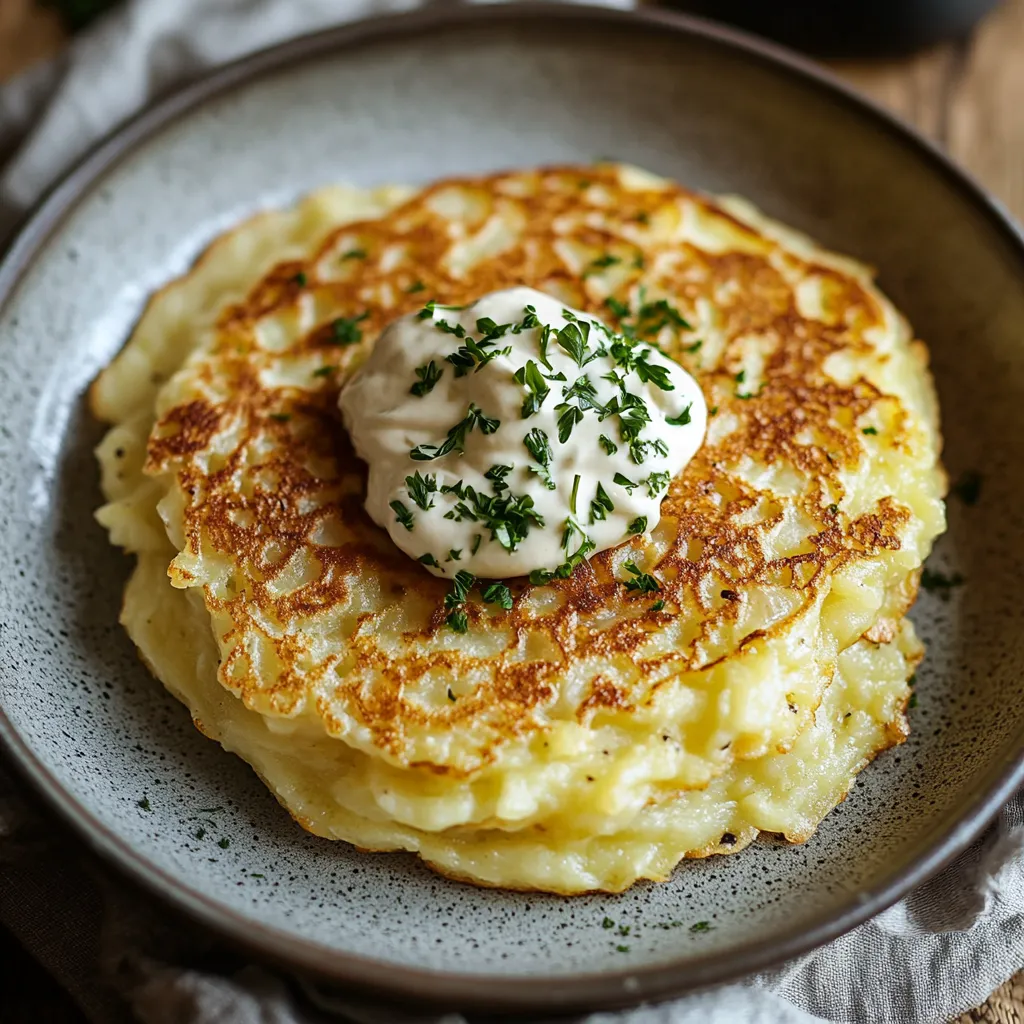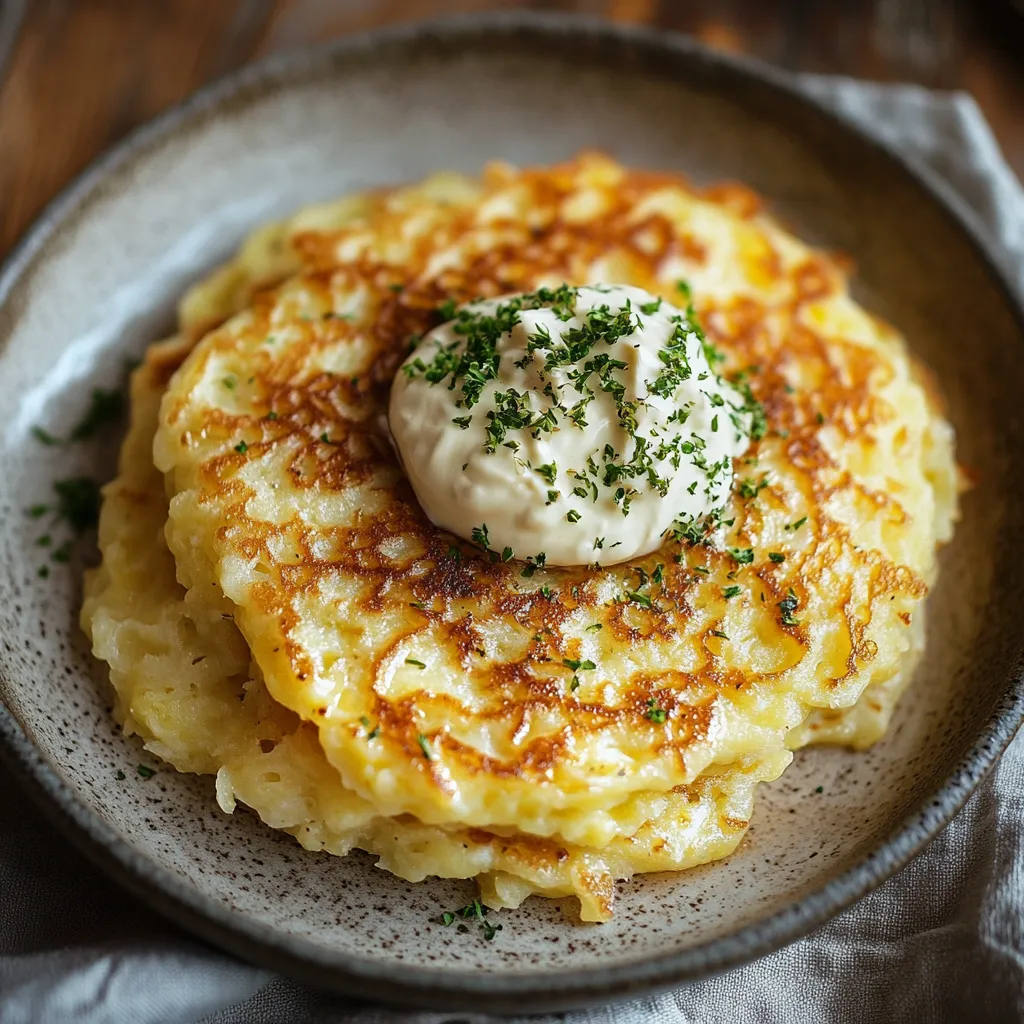 Pin it
Pin it
Crispy German potato pancakes, with their golden-brown exterior and tender center, are a testament to the simple beauty of traditional German cuisine. These humble pancakes, known by various regional names like Reibekuchen or Kartoffelpuffer, transform basic ingredients into a remarkably versatile dish that's equally at home as a cozy breakfast, satisfying side dish, or heartwarming snack.
I've been making these potato pancakes since learning the technique from my German neighbor, and I've found that taking extra time to properly drain the potatoes makes all the difference in achieving that coveted crispy exterior that German potato pancakes are famous for.
Essential Ingredients
- Starchy Potatoes: Choose mature potatoes with a high starch content like Russet or Yukon Gold. Their dense texture and lower moisture content create the ideal base for crispy pancakes
- Yellow Onion: Select a firm, fresh onion without any soft spots. The natural sugars in the onion caramelize during cooking, adding depth to the pancakes' flavor
- Large Eggs: Room temperature eggs blend more easily with the potato mixture and provide better binding properties
- All-Purpose Flour: This crucial ingredient helps bind the pancakes and absorb excess moisture. Choose unbleached flour for the most natural results
- Sea Salt: Fine sea salt distributes more evenly throughout the mixture than coarse salt, ensuring consistent seasoning
Step-by-Step German Pancake Preparation
- Step 1: Prepare the Potatoes
- Peel and finely grate the potatoes using the smallest holes on your grater. The fine texture is essential for achieving the authentic German pancake consistency.
- Step 2: Prevent Oxidation
- Immediately transfer the grated potatoes to a clean kitchen towel or cheesecloth. Working quickly prevents oxidation and discoloration.
- Step 3: Extract Excess Liquid
- Gather the corners of the towel and twist firmly over a bowl, extracting as much liquid as possible. Keep wringing until barely any drops appear.
- Step 4: Combine Ingredients
- Place the drained potatoes in a large mixing bowl and add the finely grated onion. The onion should be grated just as finely as the potatoes for proper incorporation.
- Step 5: Mix the Batter
- Add the eggs, flour, and salt to the potato-onion mixture. Use your hands to combine everything thoroughly, ensuring no dry flour pockets remain.
- Step 6: Heat the Pan
- Heat a heavy-bottomed skillet or cast-iron pan over medium-high heat with a generous layer of oil. The oil should be hot but not smoking - test with a small piece of the mixture.
- Step 7: Fry the Pancakes
- Drop portions of the mixture into the hot oil, flattening them gently with the back of a spatula. Each pancake should sizzle immediately upon hitting the oil.
 Pin it
Pin it
My grandmother always insisted on using a well-seasoned cast iron skillet for these pancakes. She believed the seasoned surface added an extra layer of flavor that no other pan could replicate. After years of making them myself, I have to agree - there's something special about potato pancakes cooked in cast iron.
 Pin it
Pin it
After making countless batches of these German potato pancakes, I've come to appreciate them not just as food, but as a connection to generations of home cooks who have perfected this technique. There's something deeply satisfying about transforming humble potatoes into these golden, crispy delights that never fail to bring smiles to the table.
Frequently Asked Questions
- → Why do I need to wring out the potato liquid?
- Removing excess liquid ensures crispy pancakes and prevents them from becoming soggy during cooking.
- → Can I prepare the potato mixture in advance?
- No, the mixture should be used immediately to prevent discoloration and maintain proper texture.
- → What type of potatoes work best?
- Starchy potatoes like Russet or Yukon Gold work best as they create crispier pancakes.
- → Can I freeze potato pancakes?
- Yes, cool completely and freeze between layers of parchment paper. Reheat in the oven until crispy.
- → Why did my pancakes turn dark?
- Grated potatoes oxidize quickly. Work fast and cook immediately after mixing to prevent darkening.
